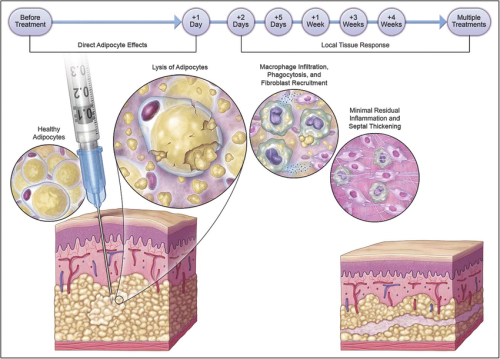The Aesthetic Society - organization for compiling and publishing stats by plastic surgeons
Dermal Fillers
Fillers are special substances usually injected into the dermis to restore lost volume, smooth lines, soften creases, and enhance facial contours. They differ in chemical makeup, firmness and longevity with some being more short term (~1 year) some intermediate (1-2 years with smaller permanent effect) [1]
Short: Hylauronic acid (short term, Juvaderm, Restylane, Elevess, Pervelle, Perlane, Hylaform, Captique, etc), Collagen (short term, Zyderm, Zyplast, CosmoDerm, CosmoPlast)
Intermediate: Calcium Hydroxylapatite (Radiesse), Poly-L-lactic Acid (intermediate, Sculptra)
Permanent: ArteFill, Silicone (Adatosil, Silikon)
Injection Techniques: Best Angles, Depths, How To Aspirate & Stabilise
High Yield Injection Targets and Danger Zones for Facial Filler Injection
Botox Injections
Blocks presynaptic acetylcholine release from motor neuron resulting in neuromuscular block. FDA Approval- 2002 Frown Lines Between Eyebrows, 2013 Crow’s Feet Lines, 2017 Forehead Lines.
Transient and reversible effect within 3-4 days. Maximum result in 10-14 days. Recall for potential dose adjustment at 2 week check up. Repeat injections 4 times in first year, every 3 months. 3 times in second year and beyond.
Detailed info on botox https://www.eandslounge.com/detailed-information-on-botox
Fat Dissolvers
Phosphatidylcholine and deoxycholic acid are the most commonly used solutions for injection lipolysis. As we stand today, sodium deoxycholate preparation is approved by the US Food and Drug Administration for the same[2]
Aqualyx uses phosphatidylcholine and Kybella uses deoxycholic acid
